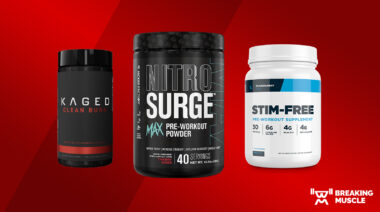Quercetin is a flavonol, which is a type of plant pigment often found in red, orange, and yellow foods, such as peppers. It also provides some of the color found in flowers. Flavonols are a typical part of the human diet, but as a nutrient, their effects are not fully known.
In a recent study in the Journal of the International Society of Sports Nutrition, researchers sought to learn more about the role of this pigment in the diet.
Study Design
The researchers used mice, which is common for this type of study. Measuring the effects of supplements and exercise regimens on the deep blood vessels of the body is typically too dangerous to do well on a human subject. However, the use of the mice in the study may be telling for the effects of quercetin on humans.
The researchers fed forty mice a fatty diet, high in cholesterol and absent in antioxidants. The mice were then divided into four equal-sized groups. One group exercised for thirty minutes a day, five days per week. Another group consumed a quercetin supplement instead, at 100 micrograms per day. A third group did both of those things, and the fourth group did neither.
Effects on Plaque Formation
Interestingly, the most significant difference in plaque formation came from the groups that either just exercised or just took quercetin. The group that did both didn’t experience any more of a significant decline in the lesions formed by the plaque than the group that did nothing, although there was a trend in that direction.
Effects on Immune Response
That said, there were other important benefits of combining quercetin and exercise. Cytokine levels, which represent an immune response in the body, were by far the lowest in the group that exercised and supplemented with quercetin. Additionally, production of the proteins that allow fat to move through the blood, and thus be used as fuel, were higher in the group that exercised and consumed quercetin. So although the lesions weren’t substantially reduced in the exercise and quercetin group, the results may well have swung in their favor if the study had been longer than one month, due to the change in immune response and fat utilization.
Effects on Weight Loss
Interestingly, the mice that exercised and took quercetin lost a lot of weight, as well. It might have been the weight loss that accounted for the difference in atherogenesis (the creation of the plaque that leads to hardening of the arteries) between the different trials.
However, because the researchers didn’t show this data, it’s impossible to tell whether the weight loss was fat or something else. They only noted that the mechanism for weight loss in that group was mysterious. Since quercetin may assist in mobilizing fat for utilization, the weight loss may have been caused by decreases in fat. Fat loss may have also reduced the plaque in the arteries, since lower lipid levels have been shown to correlate with lower plaque buildup.
Regardless of what caused the weight loss, the groups taking quercetin experienced many of the benefits of exercise in terms of plaque formation and chemical responses in the body. The combination of exercise and quercetin together seemed to be even better.
Quercetin may have some drug interactions, so if you’re interested in this supplement make sure to check with your doctor first if you’re on any medications. Otherwise, it might be a suitable supplement for improved health, longevity, and fat burning.
References:
1. Garelnabi et al. “Quercetin intake with exercise modulates lipoprotein metabolism and reduces atherosclerosis plaque formation,” Journal of the International Society of Sports Nutrition 2014, 11:22.
Photo courtesy of Shutterstock.






